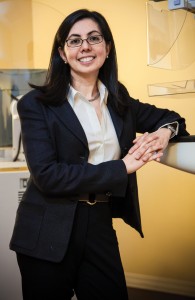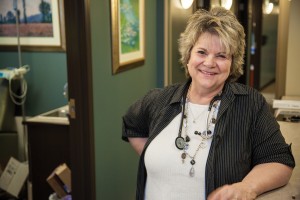Lifting the fog on breast-cancer screening and risks | by

Like a campfire ember that refuses to fade, the mammogram debate has smoldered since doctors first began using the X-rays as a breast-cancer screening tool in the 1970s. They save lives. They don’t. They result in too many false positives that freak women out. Throw in expert statements that self-breast exams aren’t worthwhile, and it’s no surprise that many women are confused. To help clear the haze, we asked two Denver-area experts to respond to two of the more recent and controversial recommendations as part of the four-page section that follows.
The issues:
In 2007: Pointing to false-positives, radiation exposure, false reassurance and pain, the American College of Physicians said mammography’s benefits do not outweigh the risks in the 40-to-49 age group; it also suggested that mammograms result in overtreatment of DCIS (ductal carcinoma in situ), a type of breast cancer that does not always become serious.
In 2009: The U.S. Preventive Services Task Force also stated the benefits of routine mammograms do not outweigh the risks in the 40-to-49 age range, and recommended mammograms only every two years for women 50 and older. The panel also claimed the evidence does not support the use of breast self-exams.
The response:
On poor efficacy, not screening from age 40 to 50:
Kovachy: Studies dating as far back as the ‘60s have shown that screening mammography reduces breast cancer deaths by about 25 percent to 30 percent in women over 50. Data is not so clear-cut in younger women. However, the unclear benefit in these older trials is attributable to several factors. One, the actual number of breast cancers diagnosed was small and consequently no statistical significance was seen. Two, mammography at that time was not as good as it is today. And three, young women tend to have denser breasts, and a cancer might be more easily missed. However, current reviews in younger women find a clear survival benefit of routine mammograms.
Barke: Women in their younger ages can often get more aggressive cancers. If you wait, you are bound to find cancers at a later stage that could have been detected earlier. The tragedy isn’t finding the cancer. The tragedy is finding it too late. We are not able to prevent breast cancer in most cases, but if we find it early, we can do something about it.
On screening every two years after 50:
Kovachy: I doubt any breast cancer specialist would recommend screening every two years instead of yearly. Aggressive cancers are especially worrisome and could grow significantly in a two-year time period. The whole point of screening is to find cancer at an earlier stage when prognosis and cure rates are better.
Barke: That is a very concerning recommendation. I see cancer in patients who decided, for whatever reason, to postpone their mammograms. It’s frustrating to know that the cancer could have been found earlier if the annual screening recommendation had been followed.
On false positives:
Kovachy: Mammograms are not perfect. At Invision Sally Jobe, where they are breast radiology experts, about 30 percent of mammogram-prompted biopsies are positive, and about 70 percent are benign. But for a screening tool, those are good results. And the logic that we shouldn’t screen because the majority of women go through biopsies and anxiety for no reason is ridiculous. So let’s just not biopsy people because it stresses them out and let them go on to die of cancer? I take care of people who have breast cancer every day. I want to diagnose the disease early so people have good outcomes.
Barke: I see patients every day who have undergone a biopsy based on an imaging finding. Most women are relieved and happy they went through it. They want to be proactive about their health care. The potential benefits far outweigh any inconvenience on the patient’s part. And this is a minimally-invasive needle biopsy. Patients are able to go to work that same day.
On radiation risk:
Barke: Current technology uses a very small amount of radiation dose, which is strictly regulated and can be considered negligible compared to background radiation the public receives. It is well known in the current literature that the benefit of screening mammography far outweighs any harm from the exam and women should continue to get screened.
On no self-exams:
Kovachy: BSE’s (breast self-exams) cannot detect cancers as small as mammograms can, so these tumors are often found too late for great outcomes. But not always. And since mammography is not 100-percent accurate, I wouldn’t tell people to stop doing them.
On overtreatment of DCIS:
Kovachy: We do find a lot of DCIS (ductal carcinoma in situ) with mammography, which have an excellent prognosis. It could be that some of these cancers are very slow growing and might take years or even decades to cause a problem. So are we perhaps over treating them? Maybe. But right now no one is able to tell me which cancers I need to worry about and which are not going to cause a problem in that patient’s lifetime. Ongoing studies are focused on answering that question.
The recommendation:
Mammograms: Women age 40 and older should have a mammogram every year for as long as they are in good health. (High-risk patients often start earlier.)
Breast self-exams: BSE’s are an option starting in women’s 20s.
Clinical breast exams: CBE’s should be performed every three years in women in their 20s and 30s and every year starting at age 40. (American Cancer Society)
______________________________________________________________________________________________
A HealthONE representative can answer your questions and help you find the right physician, close to home. Call 303-575-0055 today.
http://www.swedishhospital.com/conditions-we-treat/cancer-care/breast/breast-cancer-specialists.htm
Tags: breast-cancer screening, debate, early detection, false-positives, Invision Sally Jobe, Lora Barke, mammograms, medical director, oncologist, radiation exposure, radiologist, Robin Kovachy, screening, Swedish Medical Center
Leave a Comment
Please be respectful while leaving comments. All comments are subject to removal by the moderator.


